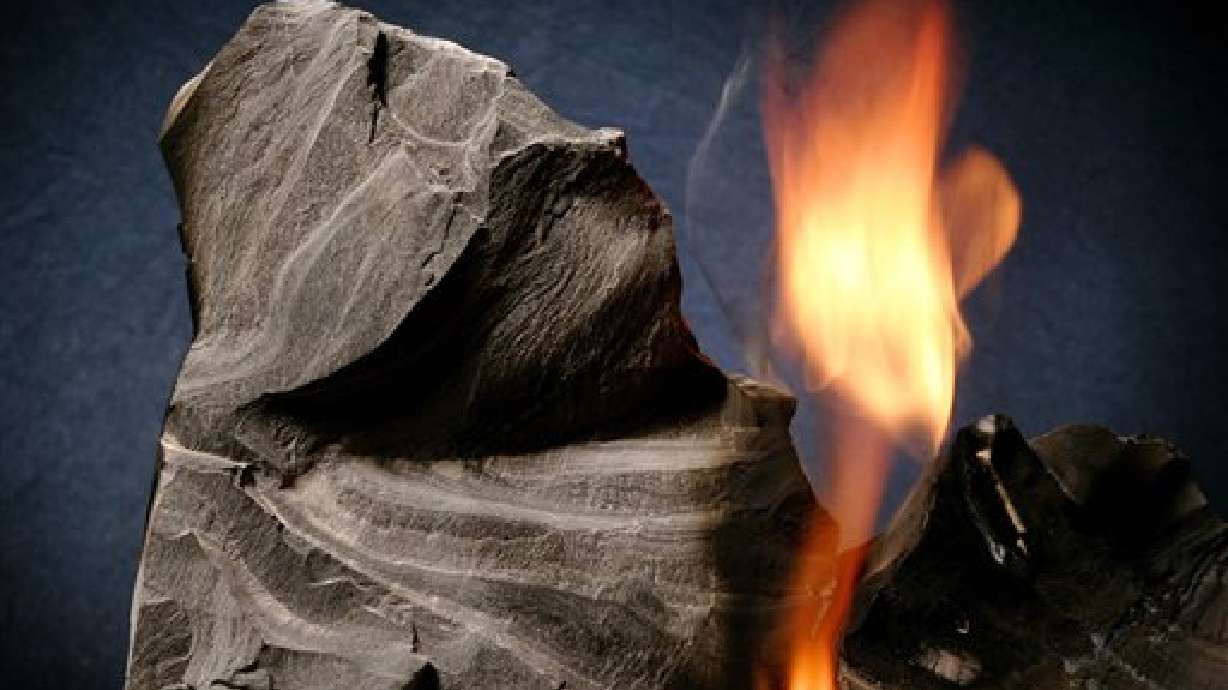Estimated read time: 3-4 minutes
This archived news story is available only for your personal, non-commercial use. Information in the story may be outdated or superseded by additional information. Reading or replaying the story in its archived form does not constitute a republication of the story.
GOLDEN, Colo. (AP) -- The commercial development of oil shale can help meet growing energy demands and diversify the country's fuel sources, industry and government representatives said Monday.
Exxon Mobil's projections suggest that all forms of energy, including oil shale, will be required to meet the demands, company executive Richard Lowe said during an oil shale symposium at the Colorado School of Mines.
Mining the oil shale underlying eastern Utah is an important part of the state's focus on the economy and energy, said Alan Walker, with the governor's economic development office and the Utah Science Technology and Research Initiative. He repeated former Gov. Jon Huntsman's declaration made last year at the same symposium that Utah is open to commercial oil shale development.
"I want to let you know that you're very welcome in Utah," Walker told the crowd, which included industry and government representatives.
A Colorado official took a more cautious approach, saying the state supports oil shale development.
"We think everybody agrees that all options need to be on the table" in energy development, said Bob Randall of the Colorado Department of Natural Resources.
But Randall said the state wants more information about the technology, still in the experimental stages, as well as the costs and potential impacts on water supply and quality, environment, public health and communities.
"These are serious questions and we're anxious to see how you answer them," Randall said.
Last year, federal officials approved a plan to make nearly 2 million acres of public land available for oil shale development and finalized rules for commercial production. The equivalent of more than 1 trillion barrels of oil is thought to be in shale under northwest Colorado, southwest Wyoming and eastern Utah. The U.S. Geological Survey has said there are about 1.5 trillion barrels of the resource in Colorado alone.
But companies, including Exxon Mobil and Shell Oil, are still testing ways to squeeze the oil out of the rock. Federal and industry officials have said it likely will be at least a decade before commercial development starts.
Five leases of 160 acres each were issued on federal land in Colorado and Utah in 2006 and 2007 for research, development and demonstration projects. Randall said nothing has happened on the parcels and Colorado wants the Interior Department to assess those leases before issuing a second round.
Interior Secretary Ken Salazar in February withdrew solicitations by the outgoing Bush administration for more oil shale research leases. As a U.S. senator from Colorado, Salazar criticized the Bush administration for what he felt was a rush to lock in royalty rates and regulations for commercial oil shale production.
Lawsuits by environmental groups claim the Interior Department failed to ensure a fair market return for public resources when it set royalty rates.
Lowe of Exxon Mobil said the oil shale industry is new and unproven and government polices providing a stable regulatory and economic climate will be important.
The shale, or kerogen, is a precursor to oil that wasn't buried deeply enough or naturally processed long enough to complete the transformation to oil. Turning the shale to oil requires heating it: above ground after mining or, as Shell has done on its land in northwest Colorado, in the ground, a process called in situ -- "in place."
The last attempt to mine Colorado's oil shale, considered the region's richest, went bust when oil prices dropped and government subsidies dried up. People still refer to "Black Sunday," May 2, 1982, when Exxon shut down a $5 billion project near the West Slope town of Parachute, putting 2,200 people out of work.
The 29th oil shale symposium, hosted by the Colorado School of Mines and the Center for Oil Shale Technology and Research, runs through Wednesday.
(Copyright 2009 by The Associated Press. All Rights Reserved.)








